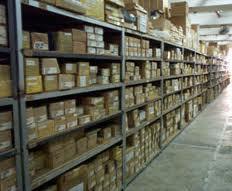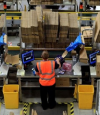Video Game Wholesalers – Part 2 – Prices that You will Get
In Part 1, we have discussed how to find wholesalers and distributors of video games, consoles, and consumer electronics, and how to apply for an account with them. Suppose you were successful and have received a response from a distributor that they had opened an account for you. Very good. Next step, they will give you an access to their stock list with prices. Here, it starts to get a little complicated.
Supplier or Broker?

Wholesale vs. Retail Price
The second thing that will definitely create questions is the prices that you get. And here where it gets really confusing. It seemed that everything was going well so far, we found a good supplier, managed to open an account with them, now we are going to get their low prices, buy lots of goods and earn lots of money by reselling, isn’t that great! Not exactly. Unfortunately it is unlikely that we will get good prices from them. At least not in the beginning. But first of all let us clarify what is a good price? Good example is large retailers, such as Game, Play, and of course Amazon. They have everything, all kinds of products, very nice websites, product descriptions, pictures, and prices. Since these are retailers, it is natural to expect that we would be offered prices that should be lower than the prices at these stores. Of course, how else we can make a profit? Not exactly I am afraid. After receiving a stock list from our wholesaler, we may discover that many of the prices in the stock list are actually MORE expensive compared with the prices of some retailers. What is wrong? There are two explanations here. First of all there is no wholesaler or distributor that can offer the lowest prices on ALL of its stock items. Large distributors have thousands of items in stock. Some items have low prices, other items not so low, there are also some items that are definitely quite expensive. The price of an item depends on many factors, such as the cost that the wholesaler has paid to purchase the item, how many it has available in stock now, how quickly the wholesaler would be willing to spare that stock, what the competition for that item is, who else sells it, and for how much, as well as about a hundred of other factors.
And this is not all either. It appears, comparing with the prices of Game, Amazon does not really make much sense, because their prices and the driving forces that influence those prices are in quite different dimension. Let me give you a simple example. Many large retail chains sell video game consoles below the cost. Why do they do it? Because they earn their margins on selling video games. They have calculated that even though they will loose on sale of consoles, as a result they will earn more on selling the games. They are large and they can afford making loss in one product in order to make more profit in another. They are so big that they actually drive the prices. The huge retail chains purchase in tens of thousands units directly from the manufacturers with huge discounts for super low prices, and then they sell these consoles with even lower prices!
Think what are the chances of other resellers, including wholesalers, to sell these consoles even cheaper? Chances are none. The large retailers can offer the consoles cheaper anyway. And you or your suppliers cannot even buy from these retailers, not the wholesales quantities that you need. They sell only few pieces per person. This is understandable because the product is subsidized by them.
As a result, for such items one can observe a price paradox, when wholesale prices could be more expensive than retail price! This becomes a frequent cause of misunderstanding between a buyer and a new supplier, because the buyer gets an impression that the new supplier is trying to rip them off and impose some unreasonable prices. It is not really the case, the wholesaler itself may appear to have higher purchase prices that some large retailers prices.
Price Banding
There is something else that we need to know about the prices. It appears wholesalers and distributors have different price bands for different customers. Yes, that’s right. Different price levels for different customer, and the prices may be considerably different. The most expensive prices are usually offered to customers, who the distributors do not want to deal with, and would like to get rid of. The lowest prices are for large and most loyal customers, such as other distributors and wholesalers, especially in countries that have low market prices. Depending on what information a distributor gets from you during your application process, plus the information that the distributors finds on you from other sources, they would offer you a relevant price band. They are unlikely to inform you which band they have assigned to you, but if do ask them, they might inform you how many price bands they have and which particular band you have received. You may ask them what needs to be done for getting a better price band. It most probably would be connected with the volumes of buying. It would be wise not to rush into committing volumes that you would not be able to fulfil. Work it out slowly and eventually. You may request discounts on specific orders. You may be in not a favourable price band but you can always ask for a discount on a good order. This is tricky though. If you buy hundred different items, one piece of each, it is unlikely that you will get any discount on such an order. But if you buy hundred pieces of one item, you can definitely ask for a discount and you will most probably get one. If you periodicity do such orders, you may soon request to move you to a better price band. How much better? Well, a £0.2 – £0.3 discount on a game is a good discount, a £1.00 – £1.50 on a console is also a very good discount. More is needed? For that, you will have to make an order for thousands of games or hundreds of consoles. We need to understand that distributors and wholesalers usually work with small margins, they earn on large volumes, and there is no much room for making a considerable discount, and we should be realistic in how much discounts we can expect.
Using What We Have
Let’s try to draw some conclusions. First of all, we should not get upset if we have initially received prices from a distributor that turned out to be much higher than we were expecting. We saw that there are reasons for that, both internal and external. The external reason is the competitiveness of the particular product, the internal is the price band that you have, and your ability to change it. On external, there is not much we can do about, except trying to avoid selling products that are also sold cheaper by much stronger competitors. There is not much sense in trying to compete in selling mass products with such giants as Tesco, Amazon, or Game. You need to find a niche, find products where you can be competitive. There are such products, they do exist. When you receive a stock list from a distributor with thousands of items every day, after making careful analysis, you can choose a few items that can make a profit for you after reselling. The suppliers stock list change every day, because products sell out and more products arrive, and the list of products that you buy from a particular supplier changes too. And here we can repeat the thought that we have made in Chapter 1, that you need to deal with more than supplier. If each of the suppliers can offer you even a few products which are right for you, those that you can resell profitably, then several of such suppliers can provide you with some variety in your stock list.
Enough about prices, in the next chapter we will discuss how to increase your volumes, build good relationship with your supplier, and develop further your account.
Continued in Part 3 – New Releases vs. Back Catalogue Games
Previous Chapter – Part 1 – How to find video game wholesalers and buy from them
Related Topics: Video Game Wholesalers' Guide




Where is Chapter 3, sir?
It is coming soon, we will inform all subscribers as soon as it is ready.